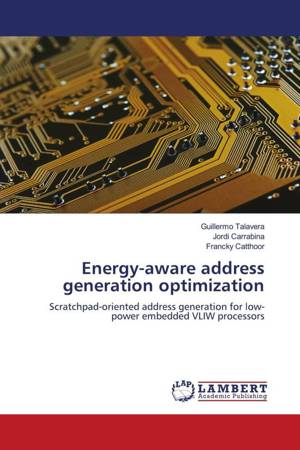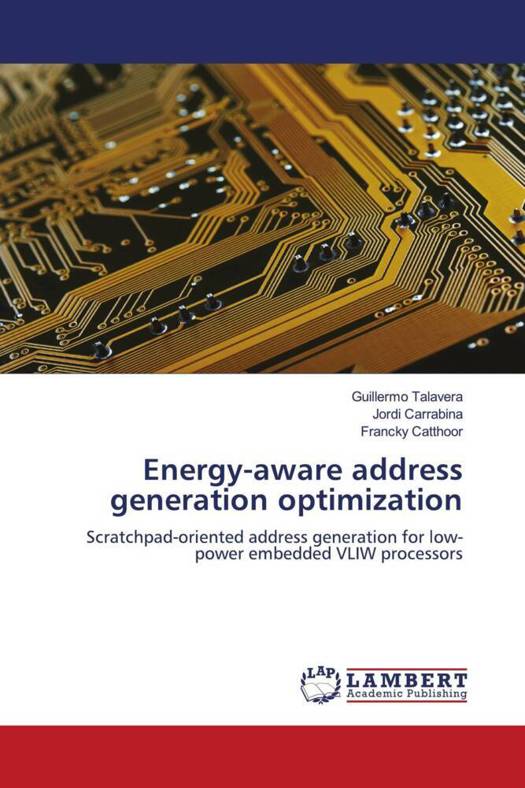
Door een staking bij bpost kan je online bestelling op dit moment iets langer onderweg zijn dan voorzien. Dringend iets nodig? Onze winkels ontvangen jou met open armen!
- Afhalen na 1 uur in een winkel met voorraad
- Gratis thuislevering in België vanaf € 30
- Ruim aanbod met 7 miljoen producten
Door een staking bij bpost kan je online bestelling op dit moment iets langer onderweg zijn dan voorzien. Dringend iets nodig? Onze winkels ontvangen jou met open armen!
- Afhalen na 1 uur in een winkel met voorraad
- Gratis thuislevering in België vanaf € 30
- Ruim aanbod met 7 miljoen producten
Zoeken
Energy-Aware Address Generation Optimization
Scratchpad-oriented address generation for low-power embedded VLIW processors
Guillermo Talavera, Jordi Carrabina, Francky Catthoor
Paperback | Engels
€ 58,45
+ 116 punten
Omschrijving
Nowadays Embedded Systems require high performance specific computations, usually with real-time and Quality of Service constraints, which should run at a low energy level to extend battery life and avoid heating. Very Long Instruction Word (VLIW) processors are a good solution providing enough computational performance at low power with the required programmability to meet short time-to-market restrictions. For those architectures with a high number of computational resources running in parallel the access to data is becoming the main bottleneck that limits the available parallelism. The purpose of this work is to prove that optimizing address generation is an effective of accessing data while decreasing execution time and energy consumption. First, this work evaluates the effectiveness of VLIW processors and presents the architectural exploration framework used for the experiments. It also presents a systematic classification of address generators, a review of literature according to the classification of the different optimizations on the address generation process and a step-wise methodology that gradually reduces energy.
Specificaties
Betrokkenen
- Auteur(s):
- Uitgeverij:
Inhoud
- Aantal bladzijden:
- 160
- Taal:
- Engels
Eigenschappen
- Productcode (EAN):
- 9783844304756
- Verschijningsdatum:
- 7/02/2011
- Uitvoering:
- Paperback
- Formaat:
- Trade paperback (VS)
- Afmetingen:
- 152 mm x 229 mm
- Gewicht:
- 244 g

Alleen bij Standaard Boekhandel
+ 116 punten op je klantenkaart van Standaard Boekhandel
Beoordelingen
We publiceren alleen reviews die voldoen aan de voorwaarden voor reviews. Bekijk onze voorwaarden voor reviews.











